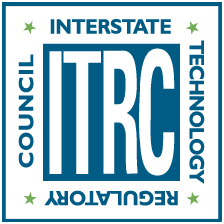ITRC & Environmental Justice – A Commitment to Our Values
Environmental Justice is making its way to the forefront of today’s environmental community following
decades of documentation detailing the disproportionate burden placed on low-income and minority
communities by pollution and environmental hazards. Failure to address EJ concerns has led to grave
consequences for low-income or minority communities; without a voice, human health in these
communities can suffer greatly as a result of poorly informed environmental decision-making.
Defined by the United States Environmental Protection Agency (EPA) as “…the fair treatment and
meaningful involvement of all people regardless of race, color, national origin, or income, with respect
to the development, implementation, and enforcement of environmental laws, regulations, and
policies,” EJ can only be achieved when everyone has “the same degree of protection from
environmental and health hazards, and equal access to the decision-making process to have a healthy
environment in which to live, learn, and work.” (USEPA, 2020a). Since its inception in the early 1980s,
the field of EJ has grown to encompass a broad spectrum of other environmentally inclusive subjects,
concerns and, ultimately, legislation; some of the terminology commonly used today includes Social
Equity, Social Impact, and Environmental Equity.
Signed on February 16th, 1994, Executive Order 12898 officially recognized EJ on a federal level, directing
agencies to focus attention on the environmental and human health effects of federal actions on
minority and low-income populations (USEPA 2020b). Further executive action has been seen recently
with the signing of Executive Order 13990, on January 20, 2021, which established White House and
Inter-Agency Environmental Justice Councils, as well as the Justice40 Initiative for federal identification
and investment in disadvantaged communities (Federal Register, 2021). Another milestone was met
when New Jersey became the first state in the nation to adopt legislation on permitting requirements
based on EJ. Signed on September 18, 2020, Senate Bill 232 requires the New Jersey Department of
Environmental Protection “to evaluate the environmental and public health impacts of certain facilities
on overburdened communities when reviewing certain permit applications.” (O’Connor, 2020).
ITRC will continue to develop reference material for project managers and environmental professionals
to consider in the use of current and future ITRC guidance materials in environmental decision-making
and project design. ITRC will include the principals of EJ in future environmental products – working
towards our mission while paying express attention to our core values of diversity, equity, inclusion and
transparency. ITRC is excited to be a part of addressing environmental justice and bringing more voices
to addressing the national and local environmental challenges.
ITRC Organizational Diversity, Equity & Inclusion
Diversity, equity, inclusion and transparency are embodied within the core values of ITRC. They are
fulfilled in the pursuit of ITRC’s mission and vision. ITRC’s Membership Code of Conduct requires every
member to benefit from team consensus and collaboration. ITRC requires diverse perspectives that
provide the knowledge and skills to address all environmental challenges in pursuit of developing
innovative products.
References
Federal Register. Protecting public health and the environment and Restoring science to tackle the
climate crisis. (2021, January 25). Retrieved May 07, 2021, from
https://www.federalregister.gov/documents/2021/01/25/2021-01765/protecting-public-healthand-the-environment-and-restoring-science-to-tackle-the-climate-crisis
USEPA (a). Environmental Justice. (2020, December 07). Retrieved December 30, 2020, from
https://www.epa.gov/environmentaljustice
USEPA (b). Summary of Executive Order 12898 – federal actions to address environmental justice in
minority populations and low-income populations. (2020, July 23). Retrieved May 07, 2021, from
https://www.epa.gov/laws-regulations/summary-executive-order-12898-federal-actions-address-environmental-justice
O’Connor, C. (2020, October 23). New Jersey’s First in the Nation State Environmental Justice Law.
Retrieved January 07, 2021, from https://www.jdsupra.com/legalnews/new-jersey-s-first-in-the-nation-state-10124/


